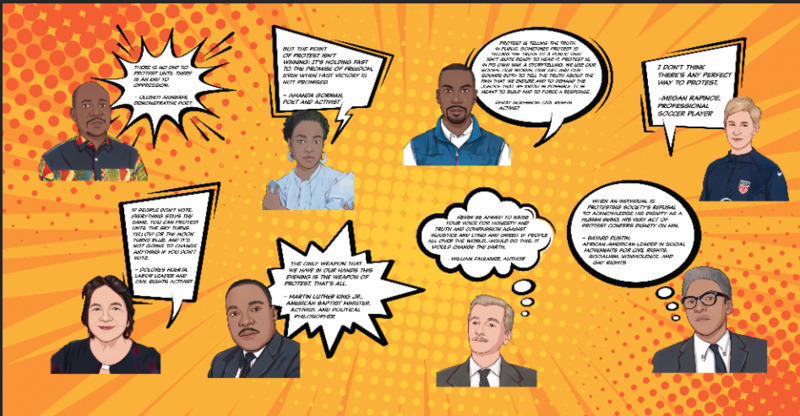Right to Protest
The Right to Protest
The First Amendment to the Constitution of the United States of America states, “Congress shall make no law respecting an establishment of religion, or prohibiting the free exercise thereof; or abridging the freedom of speech, or of the press; or the right of the people peaceably to assemble, and to petition the Government for a redress of grievances."
Although subject to certain limitations, freedom of assembly, freedom of association, and freedom of speech are protected rights in the United States. Freedom of speech, however, is not freedom from accountability or social consequences from within one’s community. Boycotts, cancellations (i.e. cancel culture), “call-out culture,” and public criticism are not infringements on one’s first amendment rights unless they violate anti-discrimination or other such laws.
Is Protesting An International Human Right?
The 1966 International Covenant on Civil and Political Rights, ratified by 173 countries, identifies the civil and political rights of individuals as human rights, including the freedom of speech and freedom of assembly. According to Amnesty International, when taking part in a protest, a person is exercising a variety of universally recognized human rights. As well as the rights to freedom of expression and peaceful assembly, this includes other rights that are essential to enable peaceful protest, including the right to life, to freedom of association, to privacy, and to be free from arbitrary arrest and detention, and from torture and other ill-treatment or punishment. Rather than being codified under a single law or treaty, the right to protest is protected under international human rights law by provisions enshrined in various international and regional treaties.
